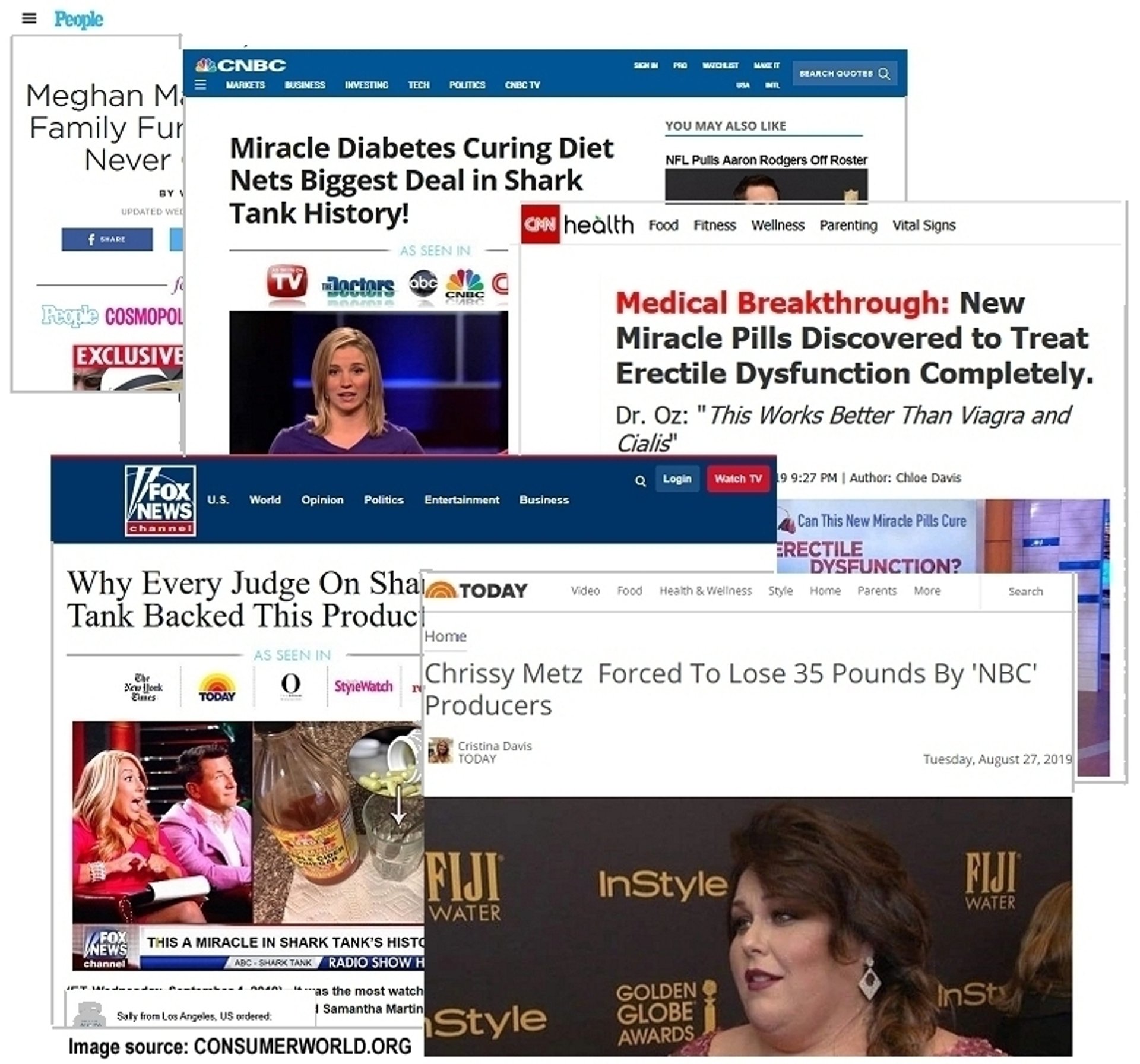
This story comes from partner site Consumer World.
In a brazen new move to lend legitimacy to the pills and potions they pitch, shady companies are now hijacking the look and feel of major news media websites to hawk their products, according to a Consumer World investigation.
No longer content to simply create fake news websites with familiar but made-up names like “Entertainment Today” or “News 8” on which they deceptively sell their products, scam artists have now appropriated the logos and cloned the format of popular news sites like those of the “Today” show, CNBC, People, Fox News and CNN, and there they publish phony news stories touting their products.
“With this move, the operators of these sites have become even more brazen in their deceptive tactics, if that is possible,” commented Consumer World founder, Edgar Dworsky. “Even savvy readers could easily be fooled into believing that these are genuine and familiar news websites. I sure fell for it at first glance.”
On these cloned news sites, unscrupulous sellers create phony news stories usually centered around a celebrity and the company’s product — typically weight loss pills, dietary supplements, or anti-aging creams. Fake customer testimonials are often included. The story concludes with a 14- to 30-day free trial offer in which customers just pay about $5 shipping for the initial order. The clock on the trial offer can start on the day the order is placed, unbeknownst to the customer. That might trigger an unexpected costly charge if the buyer does not cancel in time. These plans also tend to enroll the buyer in a recurring product shipping program at a cost of $70-$90 a month. Cancellation of the trial and future shipments is often difficult.
Sites like these periodically face enforcement actions by the Federal Trade Commission alleging various deceptive practices including misrepresentation, not labeling the site as advertising, burying details of the offer in fine print and failing to make refunds.
Consumer World advises readers who find a story online about a product to verify that they are actually on the real website of the news organization whose logo appears at the top of the page. To do this, simply check the URL (internet address). In the example below, although it appears to be the foxnews.com website, it is actually a site called “healthylifeupdate.com.”

Consumers can learn more about the deceptive nature of these free trial offers by reading a comprehensive report published by the Better Business Bureau last December,”Subscription Traps and Deceptive Free Trials Scam Millions with Misleading Ads and Fake Celebrity Endorsements.”
For an in-depth look at how the “Today” show website was deceptively used to promote certain diet pills, please visit Consumer World’s sister site, Mouse Print* here.




Add a Comment
Our Policy: We welcome relevant and respectful comments in order to foster healthy and informative discussions. All other comments may be removed. Comments with links are automatically held for moderation.